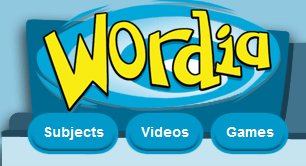The best online dictionaries are spread across the wild, wild, web, using a variety of methods to create something that helps you understand words in manners that are either extremely reliable or wholly unique. Here are ten of the very best online dictionaries.
1. Wiktionary
Founded on the same ideology as encyclopedia project Wikipedia, Wiktionary is another testament to what internet users can create together. It has many of the same downsides as Wikipedia, though, mainly that anyone can edit a page. That ultimately leaves accuracy a bit of a question mark. But, like Wikipedia, Wiktionary has a community of editors determined to make Wiktionary as accurate as possible. Don’t treat this as the be-all end-all source, but it could be one of the best online dictionaries for your needs if used responsibly.
2. Google Dictionary
Google Dictionary has a lot of different languages with features like voice pronunciation, definitions, example sentences, related phrases, related phrases and more. It’s among the most expansive and maybe best online dictionaries, and comes with some very solid brand recognition.
3. Dictionary.com
The site with the best domain name of all online dictionaries is also one of the most useful. It’s partnered with Ask.com, but don’t hold that association against it. It offers definitions, pronunciations, word origins and world history. It also is responsible for one of the best mobile dictionary apps, hands down.
4. The Free Dictionary
The Free Dictionary offers you the ability to search via words, characters or text. It gives you multiple definitions, a thesaurus, intransitive verbs and voice pronunciations, along with a translator that works with common language like French, German and Greek. It’s not particularly fancy, but you may not be looking for fancy. Overall, The Free Dictionary is among the best online dictionaries.
5. Merriam-Webster Online
One of the most respected print dictionaries also has a website for your convenience. It’s made up of a typical dictionary, a thesaurus, a Spanish to English translation and a medical dictionary. It’s features are relatively sparse but if you’re looking for online dictionaries with good pedigrees Merriam-Webster Online should be of interest to you.
6. Cambridge Dictionary Online
The Cambridge Dictionary is another well-respected print dictionary with a lot of history behind it that has a web counterpart. The online version is made up of four dictionaries: the Cambridge Dictionary of American English, the Cambridge Learner’s Dictionary, the Cambridge International Dictionary of Phrasal Verbs and the Cambridge International Dictionary of Idioms. It’s a big website that you might want to explore if you’re looking for one of the more serious online dictionaries.
7. Visuwords
This online graphical dictionary creates diagrams between words and concepts to help you understand how they associate. It’s a really unique concept, so if you’re looking for unique Visuwords is one of the best online dictionaries.
8. Wordia
Wordia is a fun option for young people to learn vocabulary, made up of word-based learning games along with an interactive video vocabulary. Not something for someone past a middle-school reading level in English, but it has potential for either children or people learning English as a second language.9. NetLingo
Not sure what some of the multitude of acronyms you see online stand for? NetLingo is one of the best online dictionaries that will explain what LOL, FWIW, and more obscure internet lingo mean, if you’re not familiar. I’m in my mid-twenties, and this is still an invaluable resource for me, with all the new terms that pop up every day.
10. Urban Dictionary
Laugh if you want, but the Urban Dictionary is a valuable tool if you come across some slang you’re not familiar with. If that’s what you need to learn, this is one of the online dictionaries you’ll benefit most from. Just be wary about going on too many random searches…
Featured photo credit: jwyg via flickr.com













































